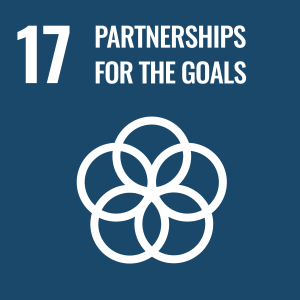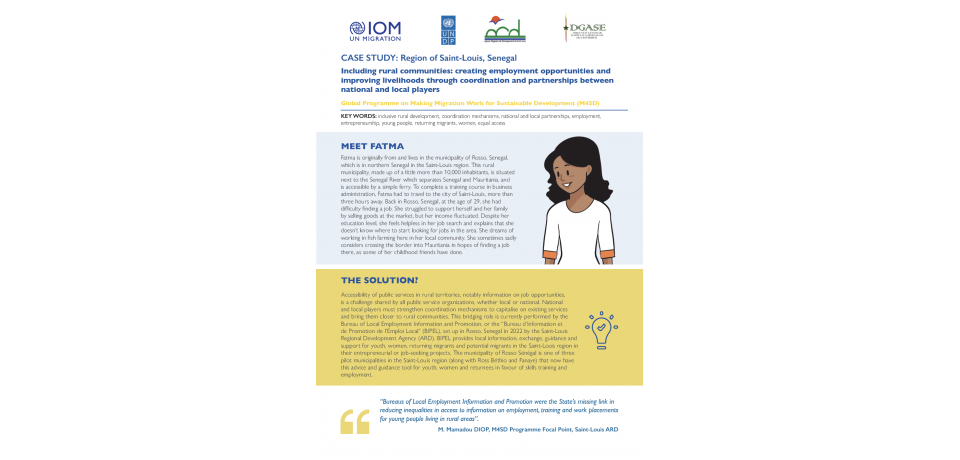CASE STUDY: Including Rural Communities: Creating Employment Opportunities and Improving Livelihoods Through Coordination and Partnerships Between National and Local Players
Objetivos de Desarrollo Sostenible Relacionados y Objetivos del Pacto Mundial sobre Migración
Fatma is hoping to become a fish farmer in her rural community of Rosso Senegal, in the Saint-Louis region of Senegal. In order to complete a training course in business administration, she left her village and travelled more than three hours to study in the city of Saint-Louis. After her course, she came back to her village and found that it was difficult to find work. She struggled to financially support herself and her family and sometimes thought about leaving Senegal for Mauritania in hope of better future.
To help young people like Fatma, national and local authorities must strengthen their coordination to make public services accessible in rural, remote places. To bridge the gap between urban and rural services, the Bureau of Local Employment Information and Promotion (BIPEL) was created by the Regional Development Agency (ARD) of Saint-Louis with support from the M4SD Programme. These offices, piloted in the region’s Rosso Senegal, Ross Béthio and Fanaye municipalities, provide support to entrepreneurs and job seekers including youth, women, returning migrants and potential migrants.
After registering with the BIPEL, Fatma was able to take a 3-month training course in fish farming, and then get permission to install her fish cage in the Senegal River Basin. She is excited to share her knowledge and would like to train her friends in order to set up a women’s cooperative in Rosso.

Read the case study (English and French) to find out how and read 4 tips that we learned from putting this approach into practice, including: expanding local employment and training directly into rural areas to facilitate more accessibility; systematically gathering disaggregated data on employment and training needs to better respond; strengthening coordination between public institutions and private sector players; replicating the best practices of current BIPELs to extend the BIPEL model to different municipalities.
These activities are carried out through the IOM-UNDP Global Joint Programme Making Migration Work for Sustainable Development (M4SD) which supports Senegalese local and national governments, the private sector and community organizations to establish community-led solutions that empower migrants and displaced people and create inclusive opportunities for all. When governmental and private sector organizations work together, communities foster greater individual success and sustainable growth (Sustainable Development Goals 4, 8, 10, 11 and 17).
Learn more about our work in Senegal.
